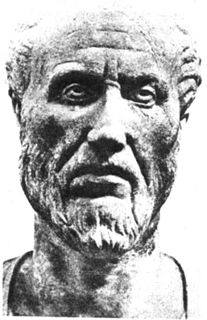
Barlaam and Josaphat are legendary Christian martyrs and saints. Their life story may have been based on the life of the Gautama Buddha. It tells how an Indian king persecuted the Christian Church in his realm. When astrologers predicted that his own son would some day become a Christian, the king imprisoned the young prince Josaphat, who nevertheless met the hermit Saint Barlaam and converted to Christianity. After much tribulation the young prince's father accepted the Christian faith, turned over his throne to Josaphat, and retired to the desert to become a hermit. Josaphat himself later abdicated and went into seclusion with his old teacher Barlaam. The tale derives from a second to fourth century Sanskrit Mahayana Buddhist text, via a Manichaean version, then the Arabic Kitab Bilawhar wa-Yudasaf, current in Baghdad in the eighth century, from where it entered into Middle Eastern Christian circles before appearing in European versions. The two were entered in the Eastern Orthodox calendar with a feast-day on 26 August, and in the Roman Martyrology in the Western Church as "Barlaam and Josaphat" on the date of 27 November.
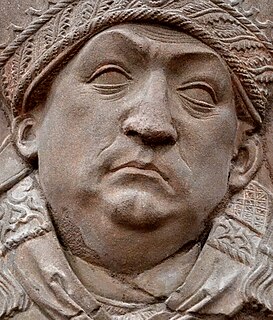
Johannes Trithemius, born Johann Heidenberg, was a German Benedictine abbot and a polymath who was active in the German Renaissance as a lexicographer, chronicler, cryptographer, and occultist. He had considerable influence on the development of early modern and modern occultism. His students included Heinrich Cornelius Agrippa and Paracelsus.
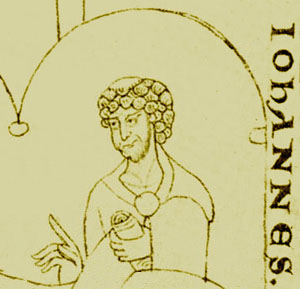
John Scotus Eriugena or Johannes Scotus Erigena was an Irish theologian, neoplatonist philosopher, and poet. He wrote a number of works, but is best known today for having written The Division of Nature, which has been called the final achievement of ancient philosophy, a work which "synthesizes the philosophical accomplishments of fifteen centuries."
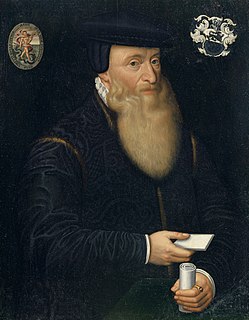
Johannes Oporinus was a humanist printer in Basel.

Johannes Tauler OP was a German mystic, a Catholic preacher and a theologian. A disciple of Meister Eckhart, he belonged to the Dominican order. Tauler was known as one of the most important Rhineland mystics. He promoted a certain neo-platonist dimension in the Dominican spirituality of his time.
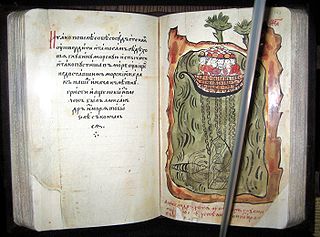
The Romance of Alexander is a collection of legends concerning the exploits of Alexander the Great. The earliest version is in the Greek language, dating to the 3rd century. Several late manuscripts attribute the work to Alexander's court historian Callisthenes, but the historical person died before Alexander and could not have written a full account of his life. The unknown author is still sometimes known as Pseudo-Callisthenes.
Georg Misch was a German philosopher.
Alfred Karl Gabriel Jeremias was a German pastor, Assyriologist and an expert on the religions of the Ancient Near East.

Thomas Gallus of Vercelli, sometimes in early twentieth century texts called Thomas of St Victor, Thomas of Vercelli or Thomas Vercellensis, was a French theologian, a member of the School of St Victor. He is known for his commentaries on Pseudo-Dionysius and his ideas on affective theology. His elaborate mystical schemata influenced Bonaventure and The Cloud of Unknowing.

Jakob Georg Christian Adler was a German Generalsuperintendent for Holstein and Schleswig, Orientalist, Syriac language professor at the University of Copenhagen, Lutheran theologian, Oberkonsistorialrat, book writer, religious educator, coin collector and head of the Schleswig-Holsteinische Bibelgesellschaft.
Pietro Balbi (1399–1479), of Pisa, was an Italian humanist, a longtime member of the familia of Cardinal Bessarion who moved in the same circle as Nicolas Cusanus, whom he served with his expertise in Greek. During Pius II's pontificate, Balbi was the most prolific translator of Greek patristics in Rome, probably using the Greek manuscripts in Bessarion's own library. One of the quattrocento defenders of Plato, he translated for Cusanus the epitome of Platonic Philosophy, Disciplinarium Platonis epitome, of the 2nd-century philosopher Albinus and the immense Theologica Platonica of Proclus in 1462, and circulated it in manuscript. Giovanni Andrea Bussi printed his translation of Alcinous, and Cusanus cast Balbi and Bussi as interlocutors in his dialogue De lì non aliud in the winter of 1462.
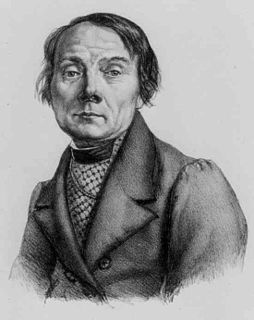
Joseph Ennemoser was a South Tyrolean physician and stubborn late proponent of Franz Mesmer's theories of animal magnetism. He became known to English readers through Mary Howitt's translation of his History of Magic.

Severus Gastorius (1646-1682) was a cantor in Jena, Thuringia.
Gottfried Joseph Gabriel Findel was a Masonic writer and publisher.

The Collectio canonum Quesnelliana is a vast collection of canonical and doctrinal documents prepared (probably) in Rome sometime between 494 and (probably) 610. It was first identified by Pierre Pithou and first edited by Pasquier Quesnel in 1675, whence it takes its modern name. The standard edition used today is that prepared by Girolamo and Pietro Ballerini in 1757.
Horst Wolfgang Böhme is a German archaeologist with a focus on Late Antiquity / Early Middle Ages and research into castles.
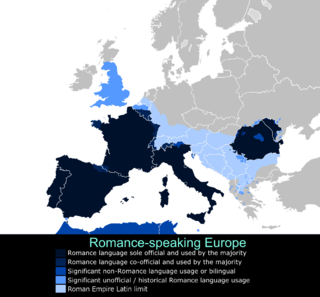
Moselle Romance is an extinct Romance language that developed after the fall of the Roman Empire along the Moselle river in modern-day Germany, near the border with France. Despite heavy Germanic influence, it persisted in isolated pockets until the 11th century.
Helmut Glück is a German linguist.

The Lexikon des Mittelalters is a German encyclopedia on the history and culture of the Middle Ages. Written by authors from all over the world, it comprises more than 36,000 articles in 9 volumes. Historically the works range from the Late Antiquity to about 1500, covering the Byzantine Empire and the Arab world.
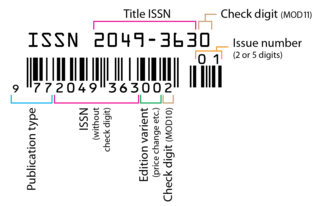
An International Standard Serial Number (ISSN) is an eight-digit serial number used to uniquely identify a serial publication, such as a magazine. The ISSN is especially helpful in distinguishing between serials with the same title. ISSN are used in ordering, cataloging, interlibrary loans, and other practices in connection with serial literature.
